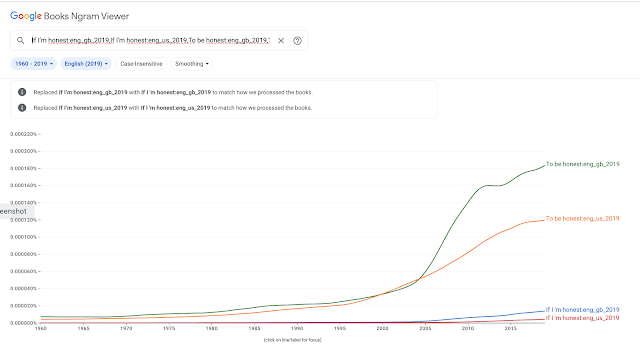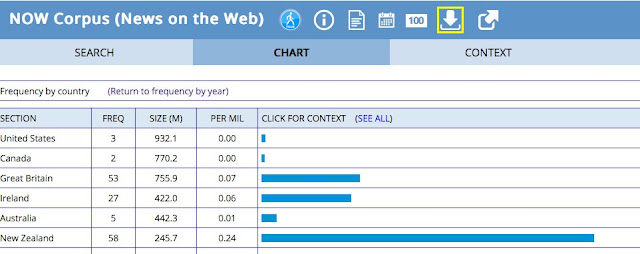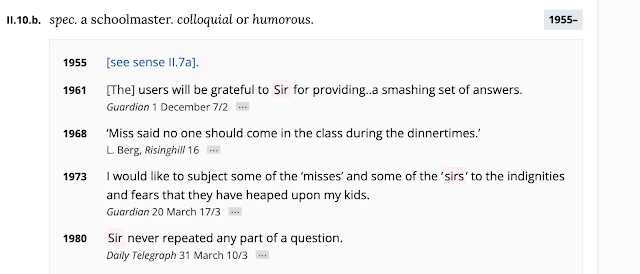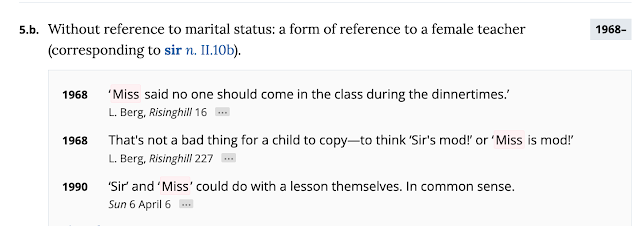 |
| Image from here |
At the Bavard Bar in St Leonard's a few months ago, a Bavardier asked me if I'd noticed the difference between the US and UK meanings of second-guess. I hadn't! She felt that the US meaning was overtaking the UK meaning, but whose meaning is really whose?
Here's what Oxford Languages says:
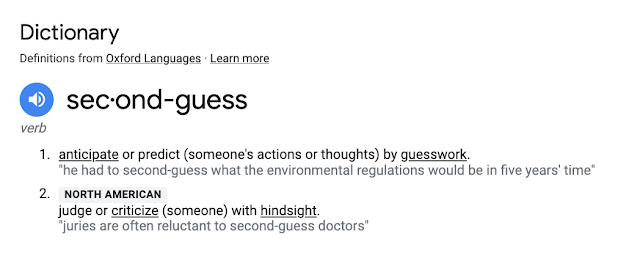 |
For me, 'judge with hindsight' doesn't capture how I use second-guess. Here's me using it in The Prodigal Tongue, talking about the acts of faith we need to take in communicating:
when you’re talking with people from other places, you cannot second-guess every noun and verb you utter.
If we use a substitution test to see which of the definitions above fits with it, it's not very satisfying.
- you cannot anticipate every noun and verb you utter.
- you cannot judge with hindsight every noun and verb you utter
Neither seems to me to capture what I meant, which was something more like:
- you cannot spend time doubting and re-thinking every noun and verb you utter
This sense of 'doubt' seems to come through when second-guess is used with a reflexive (-self) pronoun, as in I spend too much time second-guessing myself and, it turns out, there are about 2.5 times more second-guessing of oneself in the American part of GloWbE corpus as in the British part:
Wiktionary's definition might be more in line with my intuitions of the meaning.
- (idiomatic) to vet or evaluate; to criticize or correct, often by hindsight, by presuming to have a better idea, method, etc. quotations ▼
- Please don't try to second-guess the procedure that we have already refined and adopted.
- Once she began listening to her instincts and didn't second-guess herself the entire time, her artwork improved noticeably.
Their use of the originally BrE verb to vet seems to capture what I meant in my sentence: 'One cannot vet every noun or verb for its dialect-appropriateness before it comes out of one's mouth.' I'm betting this usage has arisen by 'contamination' from a similar, but centuries-older phrase: have second thoughts about.
That's not to say I always use it in the 'vetting' way. Here's an example from an email I sent, replying to a question of whether students would like to join the staff in a reading group:
I don't think we should second-guess whether students would want to do it; I think we should just invite them.
This one has more the 'anticipate' sense. I don't think I picked that up in the UK. Rather, I think the phrase does more than one thing for AmE speakers.
So, is my fellow Bavardier right that things are changing in the UK? Let's look in the News on the Web corpus, since that covers the past 14 years, whereas the GloWbE data were from 2012. Using the same search string as I used in GloWbE (second-guess* *self), there is still 2.5 times more in the US subcorpus than in the British subcorpus. If we just search for second-guess* (without the *self), it's 2.2 times more in the US.
But we can see it really picking up in BrE since 2017:
So it feels kind of 'new' in BrE. But while it's older in AmE, there's certainly a great increase in its use in the past few years. Perhaps it's that increase in the US that's allowed it to be picked up in the UK:




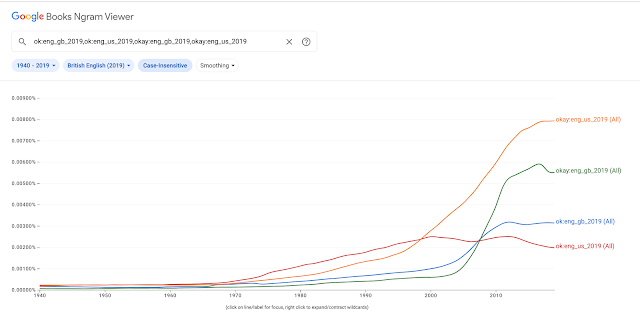






_by_Blake_Shelton.png)
